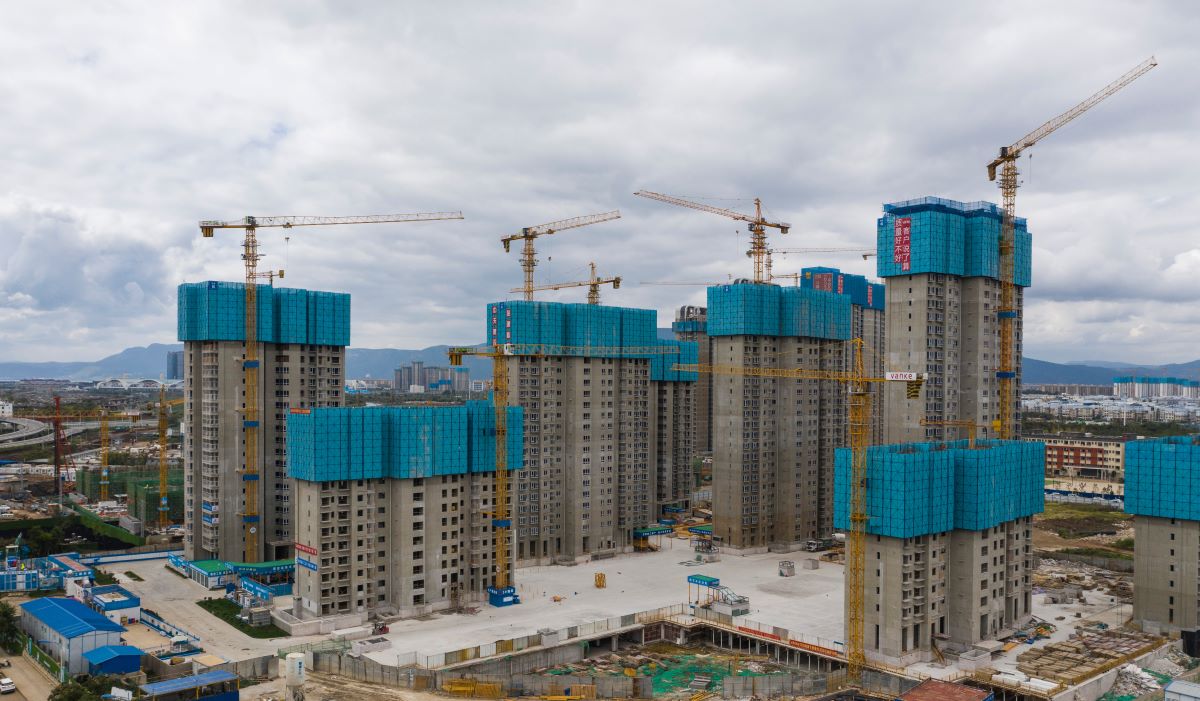China’s housing prices witnessed its most substantial decline in eight years in October 2023, reflecting a challenging trend that has raised concerns among both analysts and policymakers.
According to figures from the National Bureau of Statistics released today, new home prices in 70 cities, excluding state-subsidised housing, experienced a 0.38% decline last month from September. This marks a slightly steeper decrease compared to the 0.3% drop observed in September and represents the most significant decline since February 2015.
Last month, the average sale prices for new residences in Beijing, Guangzhou, Shenzhen, and Shanghai experienced a collective decline of 0.3%, following a stagnant period in September. These four major cities were instrumental in driving a downturn in secondhand home prices, which dropped by 0.8% in October compared to the 0.2% decrease observed the previous month.
Overall, real estate investments in China contracted by 9.3% year-on-year between January to October. Moreover, over the last ten months, the housing construction area of real estate development companies witnessed a decrease of 7.3%. Notably, within this, the residential construction area recorded a substantial fall of 7.7%.
“China’s property crisis remains a key risk for the economy as a whole, feeding through to consumer demand and investment while pressuring local government financing vehicles and increasing asset risks within trust products,” says Fitch Ratings.
“Policy support has increased since the summer, though there remains a high degree of uncertainty as to whether it will be sufficient to begin a recovery in the property sector,” adds the ratings agency.
China’s housing woes persist despite government measures
Earlier this year, a slew of measures were implemented to breathe life into China’s housing market. The government reduced payment requirements for both first and second-time homebuyers. Simultaneously, mortgage interest rates were lowered, making homeownership more financially accessible for aspiring buyers.
Looking ahead, Beijing, according to a Bloomberg report, plans to allocate a substantial 1 tn yuan ($137 bn) in low-cost financing for projects centred around urban village renovation and affordable housing programs.
Government measures to help China’s embattled property sector come at a time when two of China’s largest developers, Evergrande and Country Garden, are navigating through a precarious financial situation.
Evergrande, declared in default in late 2021, grapples with liabilities nearing $330 bn, including a significant $20 bn in offshore debt. The company is restricted by financial regulators from issuing new bonds.
Meanwhile, Country Garden, holding approximately $11 bn in dollar-denominated bonds, did not meet a $15.4 mn interest payment obligation for its 6.15% dollar bond scheduled for September 17. The company is now in default as the 30-day grace period has concluded.
Moreover, CreditSights points out that $124.5 bn worth of bonds within the $175 bn China property dollar bond sector are currently in default. Including October, there are Chinese property bonds totalling $60.5 bn maturing in the next six months, as per data from Dealogic.
Nevertheless, notwithstanding worries about China’s decelerating economy, especially in the real estate sector, the International Monetary Fund (IMF) revised its growth projections for China. The global lender now anticipates the country’s GDP to grow by 5.4% in 2023.
“A strategy to contain the risks from the ongoing property sector adjustment and manage local government (LG) debt is needed to lift sentiment and boost near-term prospects,” said the IMF.


 Australia
Australia China
China India
India Indonesia
Indonesia Japan
Japan Malaysia
Malaysia Philippines
Philippines Singapore
Singapore South Korea
South Korea Taiwan
Taiwan Thailand
Thailand Vietnam
Vietnam







